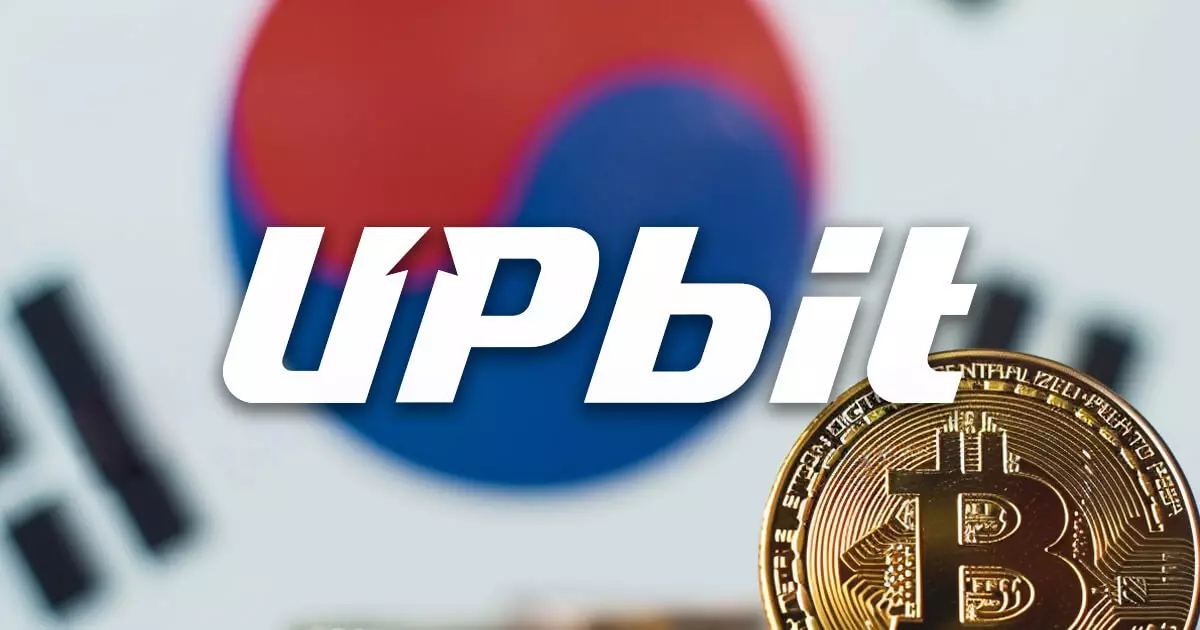In a significant move signaling the increasing scrutiny over financial practices in the cryptocurrency sector, South Korea’s Financial Services Commission (FSC) is initiating an investigation into Upbit, the country’s leading cryptocurrency exchange. This action stems from burgeoning concerns regarding Upbit’s substantial influence on the entire virtual asset market and its close ties with K Bank, the nation’s pioneering internet-only bank.
FSC Chairman Kim Byung-hwan has validated the inquiry, which reflects legal and financial apprehensions regarding Upbit’s market dominance. Local lawmaker Lee Kang-il has expressed serious concerns about the potential risks stemming from Upbit’s substantial deposits at K Bank, specifically highlighting that Upbit accounts for nearly 20% of the bank’s total deposits. This relationship poses a worrying scenario; should Upbit face operational difficulties, the consequences could extend to a bank run at K Bank, destabilizing its financial status.
K Bank, which launched operations in 2017, is reportedly gearing up for an Initial Public Offering (IPO) aimed at amassing around 984 billion won (approximately $731.64 million) in capital. If the IPO materializes successfully, it could become one of the largest public offerings in 2024, yet the bank’s sustainability comes into question amidst its current financial strategies.
Lawmaker Lee further contended that K Bank’s strategy of offering attractive interest rates—sitting at 2.1% for deposits originating from Upbit—is fundamentally flawed. Given K Bank’s existing low-profit margins, such offerings could endanger the bank’s financial equilibrium, an insight that invites deeper scrutiny into the operational viability of these cross-industry financial practices. This blend of banking and cryptocurrency raises pressing questions about regulatory frameworks governing digital assets, especially considering the historical risks associated with high leverage and unsustainable financial products.
Compounding these issues is a recent memorandum of understanding signed by Dunamu, the parent company of Upbit, K Bank, and BC Card. This agreement aims to establish a cooperative model for digital financial services, merging Dunamu’s cryptocurrency platform with K Bank’s mobile infrastructure and BC Card’s payment systems. While this initiative has the potential to bolster South Korea’s fledgling digital financial ecosystem, it simultaneously underscores the intricate web of dependencies that exist between major players in the market.
The FSC’s investigation echoes a broader global trend of increasing regulatory scrutiny over burgeoning fintech entities, particularly as they intertwine with traditional financial institutions. As authorities grapple with the implications of rapid innovations in digital finance, they must create robust frameworks that ensure the clarity and stability within these interdependent sectors.
As the FSC delves into the operations and relationships surrounding Upbit and K Bank, the outcome of this investigation could set a notable precedent within South Korea’s crypto and banking sectors. The government’s proactive stance indicates an acknowledgment of the pressing need for regulatory frameworks designed to manage risks associated with burgeoning digital assets and their intersections with conventional banking. This balancing act between innovation and regulation will continue to shape the future landscape of South Korea’s financial ecosystem.
















Leave a Reply